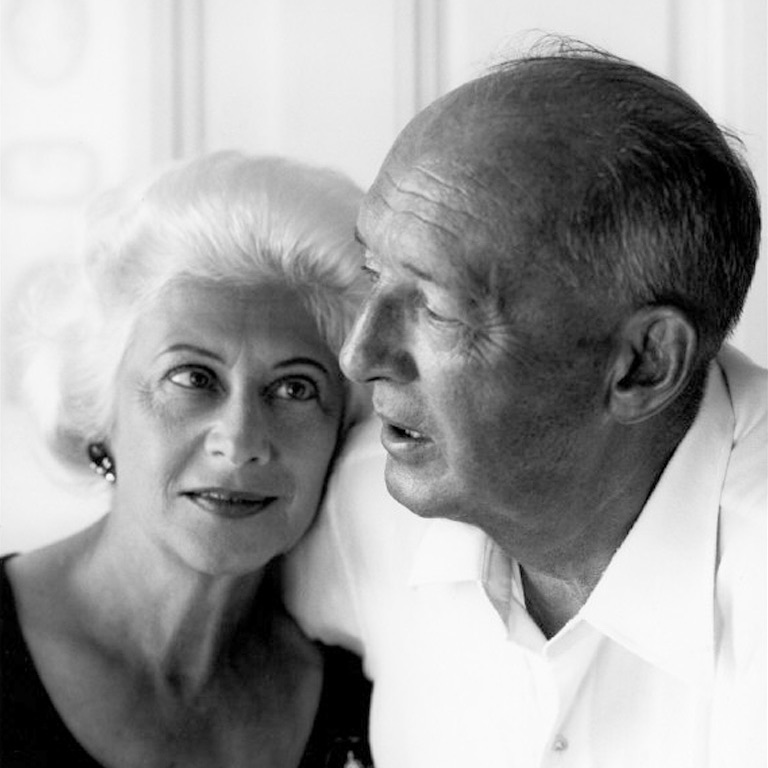Being human always points, and is directed, to something or someone, other than oneself—be it a meaning to fulfill or another human being to encounter. The more one forgets oneself—by giving oneself to a cause to serve or another person to love—the more human one is and the more one actualizes oneself. What is called self-actualization is not an attainable aim at all, for the simple reason that the more one would strive for it, the more one would miss it. In other words, self-actualization is possible only as a side-effect of self-transcendence.”
Viktor Frankl, Man’s Search for Meaning



Transcendence refers to the very highest and most inclusive or holistic levels of human consciousness, behaving and relating, as ends rather than means, to one self, to significant others, to human beings in general, to other species, to nature, and to the cosmos.”
Abraham Maslow, Various Meanings of Transcendence
To be engrossed by something outside ourselves is a powerful antidote for the rational mind, the mind that so frequently has its head up its own ass—seeing things in such a narrow and darkly narcissistic way that it presents a colo-rectal theology, offering hope to no one.”
Anne Lamott, Bird by Bird
…to do something and do it again, from morning till evening, and then to dream of it at night, and to think of nothing except doing this well, as well as I alone can do it. When one lives like that, one thing after another that simply does not belong to such a life drops off. Without hatred or aversion one sees this take its leave today and that tomorrow, like yellow leaves that any slight stirring of the air takes off a tree.”
Friedrich Nietzsche, The Gay Science



If there is a state where the soul can find a resting-place secure enough to establish itself and concentrate its entire being there, with no need to remember the past or reach into the future, where time is nothing to it, where the present runs on indefinitely but this duration goes unnoticed, with no sign of the passing of time, and no other feeling of deprivation or enjoyment, pleasure or pain, desire or fear than the simple feeling of existence, a feeling that fills our soul entirely, as long as this state lasts, we can call ourselves happy, not with a poor, incomplete and relative happiness such as we find in the pleasures of life, but with a sufficient, complete and perfect happiness which leaves no emptiness to be filled in the soul.”
Jean-Jacques Rousseau, Reveries of a Solitary Walker
It is when we act freely, for the sake of the action itself rather than for ulterior motives, that we learn to become more than what we were. When we choose a goal and invest ourselves in it to the limits of concentration, whatever we do will be enjoyable. And once we have tasted this joy, we will redouble our efforts to taste it again. This is the way the self grows.”
Mihaly Csikszentmihalyi, Flow: The Psychology of Optimal Experience
‘Mono no aware’, ‘the pathos of things’, also translates as ‘an empathy toward things’, or ‘a sensitivity to ephemera’. A term for the awareness of impermanence, or the transience of things. A meditation on mortality and life’s transience, ephemerality heightens the appreciation of beauty and sensitivity to their passing.… The movement of time transforms into an eternal present.”
mono no aware
An unhurried sense of time is in itself a form of wealth.”
Bonnie Friedman
Peak experiences such as moments of insight or epiphany are often followed by plateaus. Such insights can fade quickly without the presence of a “scaffolding” for the learning process to assist with making meaning of the unfamiliar experience…. The process [can also be] inhibited by lack of quiet solitude, not enough time in nature, staying too busy, and too quickly returning to contexts apathetic or inimical to transformation.”
David Hartman and Diane Zimberoff, Higher Stages of Human Development
 Shiba Ryotaro Memorial Museum (Architect: Tadao Ando, Photo by
Shiba Ryotaro Memorial Museum (Architect: Tadao Ando, Photo by 









